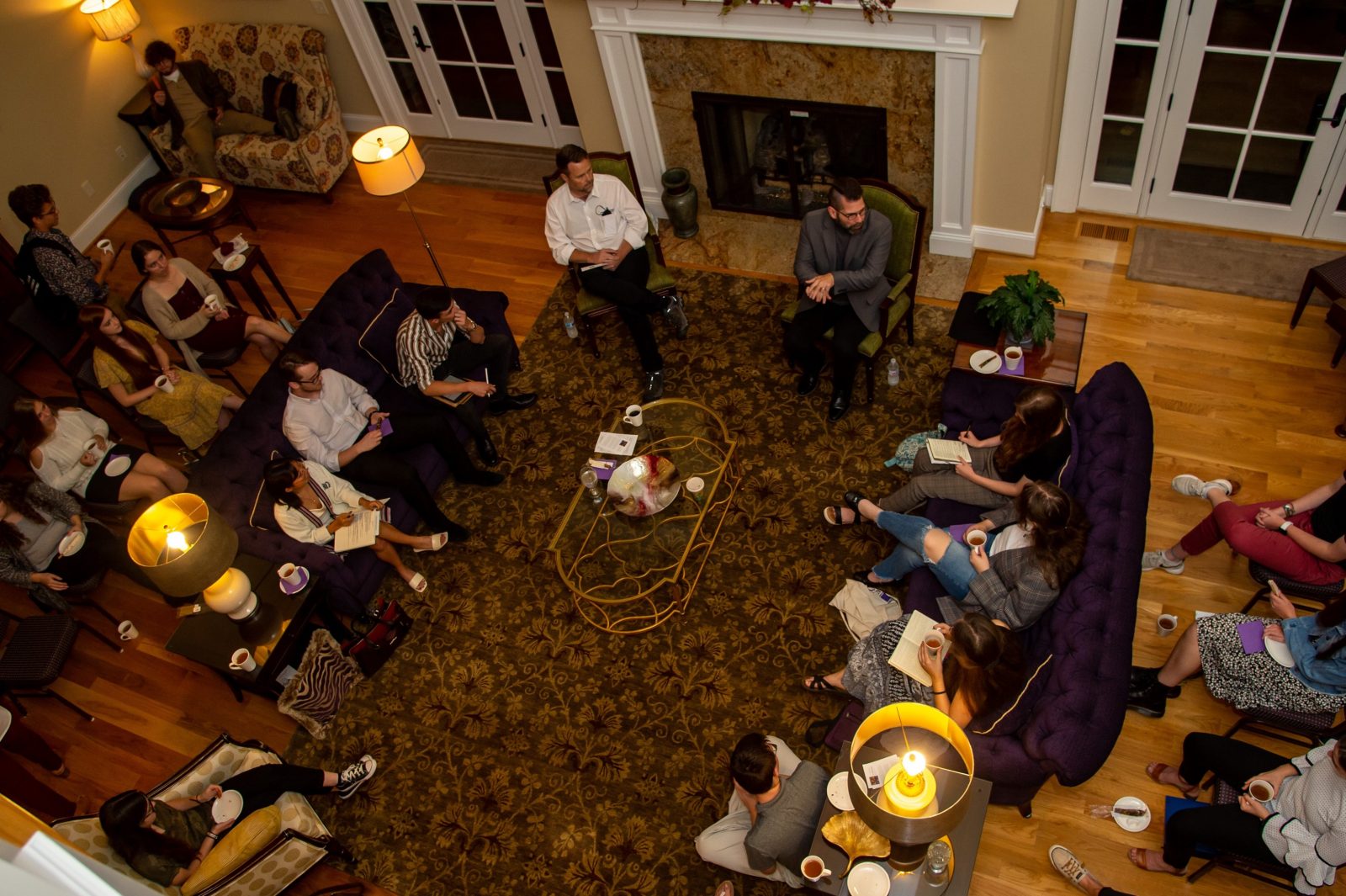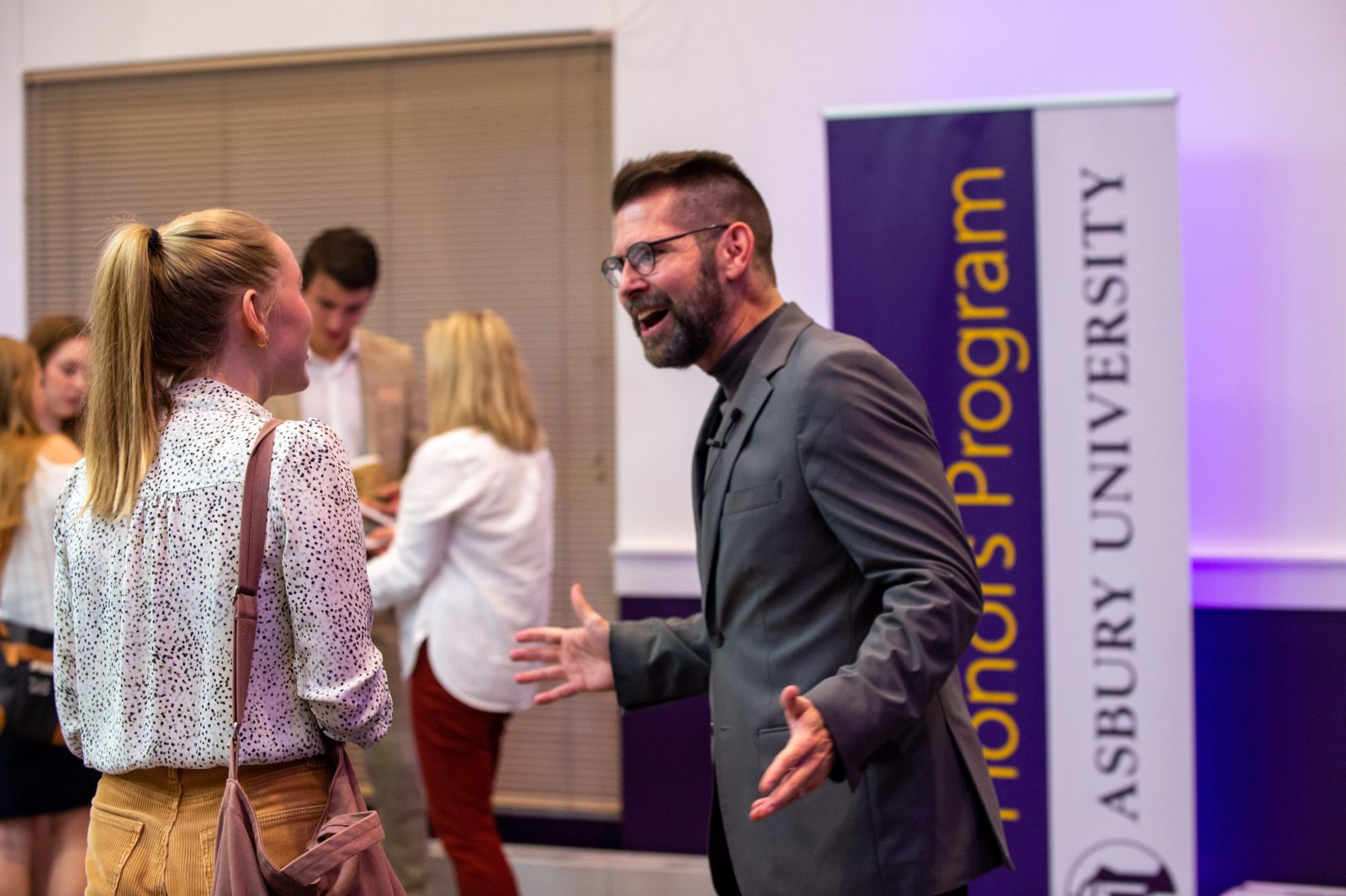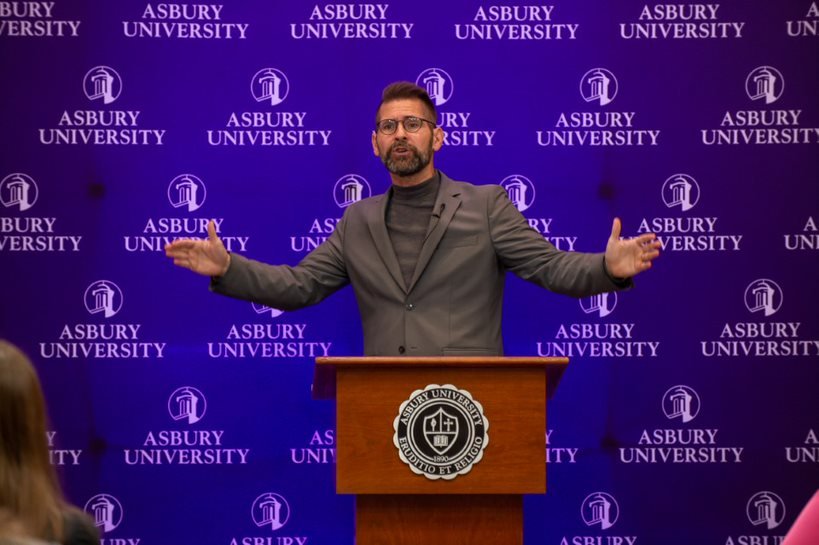The Inaugural Human Dignity Lecture, by Dr. Chris Bounds
On Thursday evening, October 7th, Dr. Chris Bounds, Professor of Christian Doctrine at Indiana Wesleyan University and Wesley Seminary, delivered the inaugural AUHP “Human Dignity Lecture” on the campus of Asbury University. His talk was entitled, “The Imago Dei, Incarnation, and Human Dignity.” The impassioned sermon-style presentation concerned the inherent dignity of humanity. (Please see the full video of Dr. Bounds talk to the right.)
The 40-minute challenge started by recalling David’s cry to God in the 8th chapter of the Psalms: “what is mankind that you are mindful of them, human beings that you care for them?” Dr. Bounds then proceeded to explain that our dignity and glory is evidenced in three areas. His first focus was on creation. Here he noted the importance of the preposition “in” versus “with” in the Genesis account – humans being made in the image and likeness of God. Our image-bearing nature is not an added on appendage, but the very essence of who we are as created beings. This elevated view of humanity was further stressed by noting that we sin not because we are human, but rather because we have become less than human by the fall.
Dr. Bounds also stressed that our divine nature is not only captured by our rationality and morality, but more fundamentally by our relatability. We were created as persons, we are relational creatures first and foremost. He took special note of our need for communion with others, pointing out the only “it is not good” in the creation saga was said as a reflection on human solitariness. Just like the triune God, we were designed to have our completion in others. Furthermore, we are embodied beings. We are not souls without bodies or bodies without souls, we are embodied souls. As such, bearing God’s image, we represent God in the created world, and we are charged with stewardship of it. We are God’s representatives to his creation.
Secondly, Bounds explains that our divine nature is grounded in the incarnation. Expounding on the doctrine of recapitulation, we learn that Jesus’ incarnation adds to the dignity and glory of being human at every stage of human development, from zygote through to full adulthood. And it is Jesus, the new Adam, who shows us what it means to be made in the image of God. It is to become a servant. Jesus comes and shows us the divine nature, our divine nature, by modeling servanthood to us. Dr. Bounds further contends that though it is humanity that got us into this mess it will be humanity, in the form of God’s son Jesus, who will get us out.
Dr. Bounds third and final reference for human dignity is the role of humanity at the end of human history; we are going somewhere. He reminds us that the most important question in theology is not “What is God?” but rather “Who is God?” The Christian response is that God is Father, Son, and Holy Spirit. Bounds observes that God’s contingent descriptions deal with his relationship to creation – that is what God does – He creates, redeems, sustains, sanctifies, serves as king, etc. But beyond what God does is who he is. His primary names are the most important language we have of God – these terms have nothing to do with creation, but have everything to do with his very nature. Who is God? He is Father, Son and Holy Spirit. Bounds notes that in our baptism we are baptized into the very identity of God. We are baptized into who God is, thus the words used are Father, Son, and Holy Spirit, rather than Creator, Redeemer, Sustainer, Sanctifier, or Healer. More fundamental to God being King is God being Father. More fundamental to a kingdom is a kindom. Bounds tells us that the language of marriage, family, and consummation is more descriptive of who God is, more representative of his primary essence, than the language of kingdom, citizenship, and servanthood. Because we were made to share in the divine nature, we are being invited into God’s family.
The implications for this astonishing truth, Dr. Bounds informs us, are profound. What it is to take seriously that we are made in the image of God is to be sensitive to those humans who are most vulnerable to have their dignity, glory, and honor stripped from them. He calls for the church today to develop a radically pro-life orientation; he calls us to come immediately and address situations where dignity is being denied to humans. The church should be consistently pro-life with regard to the beginning of human life, but not just the beginning, rather all of human life; immigrant life, those imprisoned, the widows, orphans, those caught up in human trafficking – anyone that is being denied basic human care.
After the presentation, and after a brief question and answer period, the honors students were given special access to Dr. Bounds at a fireside chat in Windsor Manor, Asbury’s recently constructed guest house (see this overview of the guest house: https://www.youtube.com/watch?v=dzCofBkeTtY&t=4s). For over an hour, the AUHP students interacted with Dr. Bounds and explored numerous topics.
AUHP director Dr. Paul Nesselroade was able to interview Dr. Bounds after the event. Look for the transcript of that interview to be posted soon.


